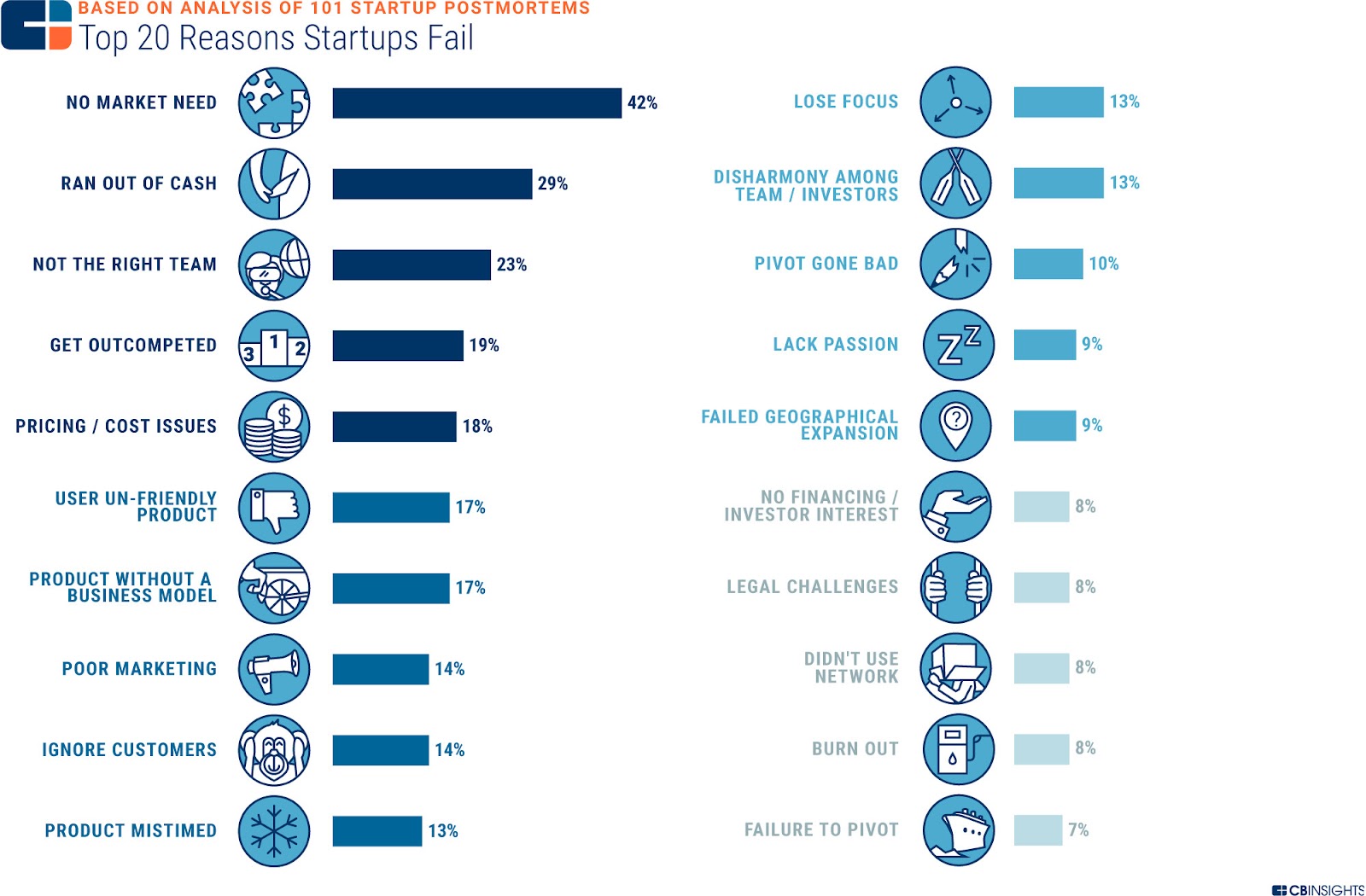Starting a new business is an exciting and challenging endeavor, but unfortunately, most startups fail. Here are some of the most common reasons why startups fail:

Image Source: CB Insights
Table of Contents
1. Lack of Market Demand and changing market conditions
One of the most common reasons why startups fail is because there is not enough market demand for their product or service. Even if you have a great idea, if there is not enough demand for it, your business will not succeed.

A prime illustration of how shifting market circumstances led to numerous firms struggling or failing was the coronavirus epidemic. Several restaurants and retail establishments saw a significant drop in activity due to closures and capacity limitations, and it took many months for some customers to feel secure enough to return.
2. Insufficient Funding
Another common reason why startups fail is that they run out of money. Starting a business requires a significant amount of capital, and many startups do not have enough funding to sustain themselves in the early stages.
The latest study, which examines the most frequent causes of company failures in 2022, was conducted by Skynova, a maker of invoicing software for small businesses, and it involved interviews with 492 startup founders in November 2022. According to the report, 47% of company failures in 2022 were attributable to a lack of funding, nearly twice as many as in 2021, according to data from CB Insight.

In 44% of failures, lack of funds was the cause. While that can be the consequence of bad money management, it might also indicate a lack of funds.
Given that worries about a future recession, among other things, have prompted investments in North American startups to drop 63% in 2022 compared to the prior year, a recent Crunchbase study, capital concerns are not surprising.
3. Poor Management
Poor management is another common reason why startups fail. This can include a lack of leadership, poor decision-making, and a failure to manage finances properly.

Startups need a group of competent people who are dedicated to the goals and objectives of the business. Many entrepreneurs, however, struggle to assemble a strong team or recruit the proper people. Poor performance, low morale, and an inability to carry out the goals of the organization might stem from hiring the wrong people or neglecting to invest in staff development.
4. Strong Competition
Startups may also fail due to strong competition in the market. If already established companies dominate the market, it can be difficult for a new startup to gain attraction.

Startups are likely to struggle with client acquisition and retention without a distinctive value offer since they can’t stand out in a crowded market. Also, business owners must monitor changing customer preferences and market trends. Startups that are unable to adjust to shifting market conditions are likely to lose ground to rivals and market share.
5. Legal and Regulatory Issues
Finally, startups may fail due to legal and regulatory issues. This can include failure to comply with government regulations, inability to obtain necessary licenses and permits, and legal disputes.

In conclusion, the majority of startups fail due to a combination of factors, including lack of market demand, insufficient funding, poor management, strong competition, inability to scale, and legal and regulatory issues. It is important for entrepreneurs to carefully consider these factors and develop a solid business plan to increase their chances of success.
For startups, it’s crucial to learn quickly and adapt. Your chances of maintaining your startup are improved the sooner you recognize these errors. Globally, the startup ecosystem is thriving, as seen by the number of new firms that are founded each year. It’s remarkable how many firms fail within their first year, even if this can be a sign of growth and competitiveness.













